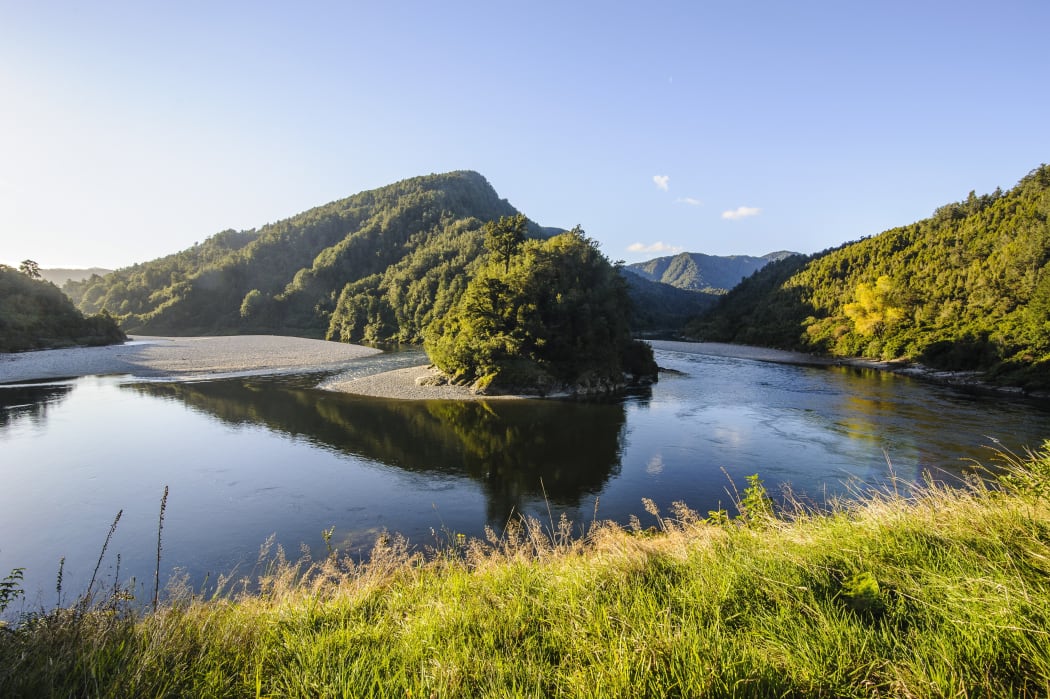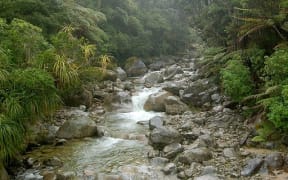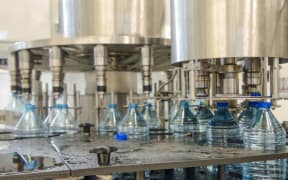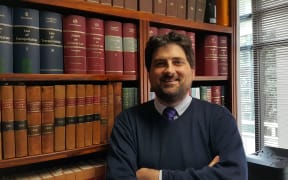A Māori water rights claim aims to protect and conserve water for all New Zealanders, the lead claimant has told a Waitangi Tribunal hearing.
The Māori Council is asking the Waitangi Tribunal to establish what rights Māori have to fresh water and geothermal resources, after the government put shares in state-owned power companies up for sale.

The Māori Council says everyone has an interest in the country's waterways. Photo: AFP
At the second stage of the hearing, which began yesterday, Māori Council chairman Sir Eddie Durie said he disagreed with Prime Minister John Key's stance that no-one owns water.
"In our view everyone owns the water, and that there is a public interest.
"What we're trying to do in this hearing and by this process is to gain recognition for the fact everybody has an interest in water, everybody has an interest in ensuring that that water is passed on to the next generation and future generations in the best condition we can possibly manage."
Massey University water scientist Mike Joy told the hearing the Crown had failed to meet its responsibilty to protect water quality.
He said rivers and lakes in most of the lowland, intensively-farmed areas were polluted, while in national parks and conservation estates there were some of the most pristine and cleanest lakes and rivers in the world.
"It's a real two worlds that we have here."
He said dairy farming could be less polluting but just as profitable with lower stocking rates, but commercial interests were trying to prevent this message being heard.
Dr Joy said policy from government departments was distorting scientific research to allow agriculture to continue polluting rivers in lowland areas.
"The cut offs, the trigger points scientifically don't change. But politicians play around with it and people play around with it, but the basic reality doesn't change."
'River with no fish'
Denis Emery, of Ngāti Kauwhata, near Feilding, said the Oroua River was severely polluted and unusable in its lower reaches.
"Right up at the headwaters of the Oroua it is pristine, it's magic. We've got some rare species up there like the field duck and even the tītī.
But as you start coming down where intensive farming starts coming into it and the deforestation happened and the erosion - it starts to go wrong.
When it gets through to the township of Feilding and particularly where our marae were, where we brought up, where I was brought up, the river is heavily polluted.
"We got the sewage treatment plant, stormwater, the stockyards that they run, human waste, commercial waste, there are five types of tūtae as we call it. It's killed it.
"It's known as the river with no fish."
Sir Eddie told the tribunal the Māori view was that humans were dependent on the environment.
"The English approach, the Western approach seems to have always been that man controls the universe, man controls everything.
"The Māori approach is a vastly different one.
"We don't manage the eco-system we are part of the eco-system. We are creatures on this earth along with many other creatures. Our survival depends as much on their survival as anything else."
The hearing continues for the rest of the week and a third session starts in March next year.




